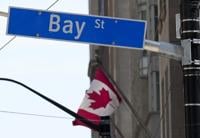TORONTO - As Toronto readies for Taylor Swift’s arrival this week, some crowd management and planning experts say additional safety precautions should be taken when tens of thousands of fans fill the city's downtown core on show nights.
That means being prepared for a sudden shift in crowd dynamics and severe traffic gridlock, despite planned road closures, the experts say.
The city recently announced various traffic and security measures in preparation for up to 500,000 visitors during the megastar's six sold-out Eras Tour stops at Rogers Centre from Nov. 14 to Nov. 16 and the following week from Nov. 21 to Nov. 23.
Tens of thousands of Swifties are expected to use public transit to get to the venue and the Metro Toronto Convention Centre, where fan event Taylgate'24 is happening. Overlapping events at Scotiabank Arena are expected to bring in even more people.
Before residents and visitors make their way downtown, crowd safety specialist Kevin Kennedy warned they should be prepared for potential changes in crowd dynamics.
The former provincial and Ottawa police officer, who now owns Kennedy Crowd Safety Solutions, said the density and movement of crowds can shift quickly.
“Taylor Swift fans tend to be very compliant and supportive of one another, but a situation can occur that changes the dynamic right away because it puts people into a panicked situation,” Kennedy said.
“If something occurs where there's an emergency, follow the direction of the people who are in charge.”
Kennedy added it’s especially important for parents with children headed to the concerts to communicate their safety plans.
“Parents can tell their kids to step away, get out of it, move to an area that’s less congested,” he said. “People want to get as close as they can, but there hits a point where you might start feeling unsafe. So step back from it — it’s not worth the injury.”
In anticipation of the huge crowds, the city has noted several safety contingencies, such as an emergency operations centre that will be activated during the Eras Tour.
Toronto Police Deputy Chief Lauren Pogue has said that while the force can't provide details about its operational plans on the concert dates, people can expect "a significant and visible police presence" both inside and outside the venue.
The city has also announced several traffic measures near Rogers Centre. At 2 p.m. on show days, multiple street blocks around the venue will be restricted to local traffic only. That includes Bremner Boulevard between Spadina Avenue and Simcoe Street, and Blue Jays Way between Spadina Avenue and south of Front Street.
There will be designated drop-off and pickup zones near Rogers Centre, as well as traffic agents in the area.
More road closures will come into effect after showtime and additional spot road closures may be needed for crowd management, with everything set to reopen by 1 a.m., the city has said, adding that those plans will be adjusted as needed.
But Amer Shalaby, a professor at the University of Toronto, said the city should consider traffic restrictions throughout the entire period of Swift's extended tour stop, not just on show nights.
“If the roads are going to be closed only during the nights of the concerts, well guess what: the other days, people will still be around,” said Shalaby, who specializes in crowd congestion and transportation planning.
“As it is now, we all know whoever wants to drive to downtown Toronto on weekends, even in the evening – it’s a mess. Imagine adding tens of thousands of people. We don’t really have the capacity to accommodate all that.”
The city needs to be “very upfront and transparent” with drivers about what the traffic situation will look like, Shalaby said.
“In the end, drivers make choices. We need to really inform them that it’s going to be pretty tough if the city is not going to close roads on other days."
He recommends that people take public transit and work from home if possible, or postpone going downtown until Swift has moved on to the next city.
Kennedy said the key to a smooth Eras Tour in Toronto is clear communication and co-ordination between city services and organizers. The city is no stranger to mass crowds, he said, and managing the higher demand on transit and roads during Swift’s concerts will come down to good planning.
“The police, the city, the authorities that deal with traffic management are quite familiar with how to manage the crowds that are approaching,” said Kennedy.
“Everybody on the ground needs to know what their roles and responsibilities are.”
This report by Ďă¸ŰÁůşĎ˛ĘąŇĹĆ×ĘÁĎ was first published Nov. 12, 2024.








































